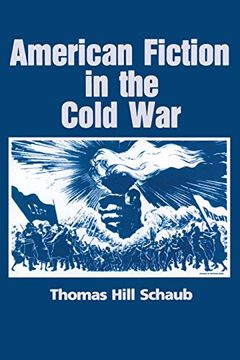Synopsis "American Fiction in the Cold war (in English)"
In American Fiction in the Cold War Thomas Hill Schaub makes it clear that Trilling's summary was in itself a mythic reconstruction, a prominent example of the way liberal writers in the late 1940s and 1950s came to terms with their political past. Schaub's book brilliantly analyzes their efforts to reshape an "old" liberalism alleged to hold naively optimistic views of human nature, scientific reason, and social progress into a "new," skeptical liberalism that recognized the persistence of human evil, the fragility of reason, and the ambiguity of moral decision. Most important, as American Fiction in the Cold War demonstrates, these liberal reassessments of history, politics, human nature, and destiny--what Schaub calls the "liberal narrative"--mediated the critical and imaginative production of the literary community after World War II. Schaub shows that the elements of this narrative are visible in a wide spectrum of cultural narratives in American history, political philosophy, and social criticism during the Cold War era. His analysis of the dominant critical communities of the late 1940s--led by critics such as Lionel Trilling and Irving Howe, Cleanth Brooks and Allen Tate--recovers the political meanings embedded within their debates over the nature of literary realism, the definition of the novel, and speculations on its "death." In the second part of his study, Schaub turns to Ralph Ellison, Flannery O'Connor, Norman Mailer, and John Barth. His readings of their fiction isolate the political and cultural content of works often faulted for their apparent efforts to transcend social history. Reviewing John Barth's End of the Road, for example, he shows the politics of culture concealed within what seems to be a philosophical narrative. In novel after novel, he demonstrates, the liberal narrative is operating from within, tuning and steering the direction of the plot and the creation of the character. Schaub's penetrating exploration of the relationship between U.S. political and social thought and the literary consciousness in the early postwar years will be of interest to intellectual historians and to students of American literary culture.

